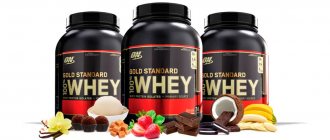Carrot juice [edit | edit code ]
The nutritional and healing properties of carrot juice are legendary.
For example, the provitamin A (carotene) contained in this juice, which is best absorbed from it, has antioxidant abilities, suppresses or slows down the development of cancer cells. Carrot juice contains vitamins PP, C, E, K, group B, sugar (up to 15%), mineral salts of potassium, iron, copper, phosphorus, iodine, cobalt, flavone and nitrogen compounds, and other biologically active substances that make it not not only the most valuable food product, but also the most effective healing agent, which is of paramount importance for the prevention and treatment of a number of diseases. Carrot juice and carrot seeds were used for kidney stones, as well as to expel sand from the urinary tract. Condensed carrot juice (like syrup) was used for thrush. Carrots and their juice were recommended for use by nursing mothers, as they help increase lactation.
Due to the presence of almost all important vitamins in carrots, it is widely used in the treatment and prevention of hypo- and vitamin deficiencies. Carrots and carrot juice are essential components of the diet for those suffering from anemia and loss of strength. Daily consumption of carrots strengthens the body, increases its resistance to infectious and colds, and adverse effects of the internal and external environment. Carrots and their juice are indispensable in baby food.
Possessing unique healing properties, carrot juice helps normalize the functional activity of all major organs and systems of the human body (cardiovascular, gastrointestinal, genitourinary), has a beneficial effect on the endocrine system (in particular, the adrenal glands), promotes the restoration of protein, fat and carbohydrates. metabolism, as well as barrier functions of the liver (for liver and biliary tract diseases).
With proper use of carrot juice, you can best cleanse the body of toxins - even cleansing the blood. This is facilitated primarily by the powerful biologically active components contained in large quantities in the juice, such as vitamin A, which is necessary to restore the immune system, for normal body growth at a young age, and for the normal functioning of the reproductive system.
Carrot juice contains a fairly large amount of vitamin C (by the way, there is several times more of it in carrot leaves), which is necessary for maintaining healthy connective tissues. With a lack of vitamin C in the body, internal hemorrhages can occur, wounds heal poorly, and gums bleed. Vitamin C, along with vitamins A and E, is an antioxidant. This means that it controls the formation of free radicals in the body - unstable particles that damage cells and lead to disease. The absorption of this vitamin is facilitated by the bioflavonoids present in carrots.
Carrot juice also contains vitamin E, which reduces the risk of blood clots, strengthens blood vessels, increases muscle strength, has a positive effect on hormones (including sex hormones), and protects cells from damage.
Carrot juice is good at cleansing the liver of various types of blockages. G. Malakhov writes: “Often, when cleansing the liver with carrot juice, such a large amount of waste is released that the intestinal and urinary canals are not able to release such an abundance of dissolved waste. The waste passes into the lymph and is then released from the body through the pores of the skin.” And further: “Consuming it (juice) in an amount of more than 500 g per day produces total neutralization of our body.”
The immune system
Carrots are an excellent source of vitamin C. This vitamin is needed to strengthen the immune system, and since it is excreted in water, your body needs to replace it regularly, which is easy to do by eating a carrot every day.
A conversation with Einstein about music, which became a lesson for Jerome Weidman
More fillings - more spirals: a simple puff pastry recipe
Memorial Day of Saint Moses: how the elder led Optina Pustyn to prosperity
During flu season, eat carrots to reduce the severity and duration of your cold. You can get the same effect from oranges, but carrots contain fewer calories and more fiber.
The benefits of carrots for future slim girls, brutal jocks and...
...who care about eagle vision.
By the way, we remember the benefits of carrots for vision thanks to the British pilots of World War II, who hid no less miraculous military equipment behind its miraculous properties. The beneficial properties of carrots are easily associated with any aspect of the life of the human body. And many, having experienced them for themselves, never tire of admiring them, sometimes leading to small family misunderstandings, because not every household member favorably perceives piles of carrots in the refrigerator: in trays for vegetables, and on shelves for pots, and in compartments for eggs and bottles (the juicer requires a lot of vegetables).
Let’s not waste time, I suggest we immediately start dealing with the valuable root vegetable. We will find out:
- about its composition;
- about the beneficial properties of carrots for weight loss, sports, vision and health in general;
- in what form is it better: raw, boiled or in the form of juice;
- why grated carrots with sour cream or vegetable oil are recommended;
- a couple of carrot recipes;
- about dangers, including allergies to carrots.
Composition of carrots
Wikipedia, characterizing its chemical properties, first of all mentions carotenoids - organic pigments that “work” as antioxidants in our body (find out in detail what antioxidants are and where they come from here).
Carotenoids are represented by water-insoluble carotene, phytoene, phytofluene and lycopene, which give the vegetable such a recognizable color.
Among the vitamins, there are representatives of group B, as well as vitamins D, C, pantothenic acid, PP, E, K and many others.
Other nutrition tips for gaining weight:
- Make yourself a meal schedule. The problem with many thin people is that they don't eat enough. A meal schedule is a huge help in gaining a certain weight, you can watch and add additional nutrition there as needed.
- Your body needs time to adjust to a more consistent eating schedule. You will snack more often, this is normal. Try to do this even if you are not very hungry.
- It is very important to drink a lot of water when you start eating more. Water helps distribute nutrients throughout the body, and weight will definitely be gained in the form of water.
Source
Benefits of carrots
The above composition cannot help but suggest an idea: the beneficial properties of carrots border on healing ones. Truly: eat and heal!
Improving vision
Despite the lack of confirmation of the British legend that eating the vegetable improves visual acuity, the vitamin A (beta-carotene) it contains is necessary for the formation and strengthening of the visual organs.
A lack of beta-carotene can lead to vision problems, including night blindness, a condition in which a person has difficulty seeing in low light.
At the same time, simply eating carrots means translating a great product. To get the benefit of vitamin A, you need to flavor it with either vegetable oil, sour cream, or another fatty product, because beta-carotene is soluble in fat.
Overall Health Benefits of Carrots
1) An active participant in redox processes. When consumed, it contributes to metabolism, improving and accelerating its flow. As we know, a good metabolism is synonymous with health (learn three important rules to speed up your metabolism here).
2) Indispensable for vitamin deficiency. That is why you need to “lean on it” especially during the cold season, when there is a shortage of short-lived vegetables and fruits (what to do with symptoms of vitamin deficiency).
3) It has noticeable antioxidant properties that bind free radicals and fight their effects such as cancer, vascular diseases, disorders of the nervous system and brain, various inflammations, immune disorders, and aging.
4) Regulates carbohydrate metabolism. Due to this property, doctors recommend that diabetics do not forget about the root vegetable.
5) Positively affects the heart and blood vessels , including the brain. The effect is achieved due to the property of lowering cholesterol levels in the blood, as well as strengthening blood vessels.
It is believed that lovers of the burnt orange vegetable reduce the risk of stroke by almost half.
Helps with hypertension, varicose veins and other problems with veins and blood vessels.
It has been proven that even low concentrations of phytoene and phytofluene contained in carrots powerfully counteract the development of atherosclerosis.
6) Used to prevent and treat cancer. It is enough to eat a medium-sized root vegetable daily to get a dose of vitamin A that can reduce the risk of cancer by 40%.
7) Improves the condition of the kidneys and liver, promoting their renewal and a certain diuretic and choleretic effect.
 Normalizes digestion by improving carbohydrate metabolism and the “climate” for beneficial intestinal microflora; a large amount of fiber, which cleanses the gastrointestinal tract from “congestion” and accumulation of so-called waste and toxins.
Normalizes digestion by improving carbohydrate metabolism and the “climate” for beneficial intestinal microflora; a large amount of fiber, which cleanses the gastrointestinal tract from “congestion” and accumulation of so-called waste and toxins.
9) Regulates mineral metabolism , and therefore is recommended for the treatment of osteochondrosis, metabolic polyarthritis and other diseases (find out what to do when your back hurts here).
10) Has a rejuvenating effect both inside and outside, restoring the epithelium of the skin and mucous membranes, as well as smoothing wrinkles. And not only when eating. Ladies who take care of themselves use carrot masks with all their might.
11) Useful for:
- anemia, characterized by a decrease in the level of hemoglobin in the blood;
- high mental stress;
- increased fatigue.
Carrots and weight loss
The benefits of carrots for weight loss are undeniable (about ways to effectively lose weight). It is for this purpose that many, along with cabbage, include it in their menu in order to quickly lose a few kilograms of excess weight.
More details about this:
1) Tartronic acid contained in the root vegetable prevents the conversion of carbohydrates entering the body into fat.
2) A large amount of indigestible fiber gives a feeling of satiety and at the same time does not carry any energy load.
3) Calorie content: only 32 kcal per 100 g. Taking into account the fact that a person needs 2 - 3 thousand kcal per day, gaining them only from carrots, one would need to eat about 10 kg of vegetables per day. Unreal and dietary!
Carrots and fitness
Taking a close look at the health-improving properties indicated above, one can see its applicability as an additive to the menu of people leading an active lifestyle and playing sports.
Let’s highlight a little why athletes love her:
- activates metabolism;
- helps you recover faster between workouts;
- stimulates cell growth;
- can be used as a vitamin complex;
- improves blood supply to muscles;
- helps increase the body's endurance and increase the duration and intensity of workouts.
Eating carrots
The champion for healthy use is, of course, the raw variety. At the same time, boiled carrots and passed through a juicer have qualities that are beneficial to us.
Drying blue cheese. Cheese in bodybuilding: useful to know
Cheese is a product obtained from cheese bases (cow/goat/sheep milk, cream, skim milk, buttermilk or combinations thereof) with the addition of coagulating enzymes, lactic acid bacteria and food additives (for example, salt, mold). After removing the whey, the cheese is ready to eat. In general, the technological process for producing cheese is quite interesting and presents the following picture.
As you know, there is simply a ton of cheese on domestic shelves. And indeed, long gone are the days when you had to stand behind the only possible type of cheese; if you don’t like it, go to hell. Now the shelves are simply bursting with an abundance of cheeses, and in order not to get confused in all their diversity, you should remember that they come in the following types (clickable).
Processed cheeses (the most famous of which is “Druzhba”) and their similar “bread-spread” variations stand apart. Looking ahead, I will say that from the point of view of usefulness there is no talk about them at all, because This is bullshit in every sense of the word. Don't believe me? Then just turn the package over, read the ingredients and evaluate the nutritional value. Well, have you realized that with such nutritional characteristics there can be no question of any usefulness?
As for looking at cheese through the eyes of the guardians of the figure, i.e. They also look at the phytonies with their eyes, then it is necessary to clearly divide them into good and bad. The first include low-fat cheeses of the following names:
- mozzarella – per 100 g 280 cal, 20-25 g fat, 28 g protein;
- feta – per 100 g 264 cal, 21-24 g fat, 14 g protein;
- cheddar - per 100 g 402 cal, 30-33 g fat, 25 g protein;
- parmesan – per 100 g 431 cal, 25-29 g fat, 38 g protein;.
I think you’ve at least heard about these cheeses, and perhaps even tried them, but the next example is very unusual, and it’s the one I’ve been giving preference to lately. So, meet Oltermanni cheese 9 and 17% fat.
This is a semi-hard cream cheese from Finland. I unwrap it and read the ingredients on the package:
- pasteurized milk;
- cultures of lactic acid bacteria;
- enzyme preparation;
- salt.
As you can see, there is nothing extra, and the best nutritional value of all presented, and the price is quite reasonable.
Carrot salad recipes
We will use the slogan: fast, tasty and healthy. The main thing here is to understand the principle, and then you can create a sea of recipes for delicious and healthy dishes.
- Salad of raw carrots, beets and radishes with sour cream.
Mix 100 g of coarsely grated raw beets and carrots with 50 g of grated radish. Add 100 g of sour cream and a little salt. Mix and eat.
The radish can be replaced with a clove or two of garlic.
- Salad of raw carrots, cabbage and apples.
Add one grated carrot and chopped pre-peeled apple to finely shredded cabbage (about 400 g).
Combine a couple of tablespoons of vegetable oil with a teaspoon of vinegar and pour into the vegetable and fruit preparation.
Pepper, salt, mix thoroughly and eat with appetite.
Is it possible to gain weight from carrots and sour cream?
It is impossible to get better from carrots in their pure form. It contains no fat at all and is low in calories. There are only 35 calories per 100 g of fresh carrots, and even less per 100 g of boiled carrots, 24. If, for comparison, we take 100 g of Korean carrots, then its calorie content will be significantly higher and amount to 134 calories.
One tablespoon-length carrot weighs about 125g and contains only 44 calories.
When you decide to include carrots in your diet in order to lose weight, you should think carefully about what foods will go with it. The list of dietary products does not include mayonnaise, heavy cream or sour cream, so carrots in combination with them will not help you lose weight.
Harm of carrots
Contraindications:
- colitis;
- exacerbation of peptic ulcer;
- gastritis with high acidity.
Boiled carrots cause an increase in blood sugar levels, so it can cause a strong appetite.
Boiled carrots and carrot juice should be used with caution by those who suffer from diabetes.
Its excess and, first of all, juice can lead to carrot-colored skin.
Allergy to carrots
A quarter of Europeans suffer from allergies to this valuable vegetable. For most, it is combined with a reaction to pollen. By boiling the root vegetable, many are able to safely include it in their menu.
At the same time, even during cooking, you can get unpleasant symptoms by inhaling steam from the pan. Therefore, knowing about the characteristics of your body, you need to take measures so as not to get a fly in the ointment from the carrot barrel of honey.
The benefits of carrots for people leading a healthy lifestyle, as well as women who are losing weight and sports enthusiasts are undeniable. At the same time, it is important not to “overdo it” so that its beneficial properties do not suddenly turn into poison. Everything needs moderation.
Interesting read:
How to replace dairy products in your diet?
The nutrition plan for lactose intolerance should be selected individually. To a large extent, the choice of foods depends on the body's reaction to lactose. You can limit your lactose intake, eliminate it from your diet completely, or take it in small amounts with enzyme-containing tablets.
Athletes with a low degree of lactose intolerance can also consume dairy products. Products with 5-10 g of lactose (for example, 100-200 ml of yogurt) will not cause unwanted discomfort. Nowadays, you can also purchase lactose-reduced or completely lactose-free products. Therefore, in most cases there is no need to completely give up dairy products.
Some athletes must avoid consuming dairy products due to a high degree of lactose intolerance. In this case, you need to provide the body with the necessary ingredients. Eliminating dairy products can lead to a deficiency of calcium or vitamins B1 and B12. It is worth including soy milk (fortified with calcium), fish, seeds, cabbage, coconut milk or tofu in your diet. These products are a source of calcium, although it is less than dairy products. Increased absorption of calcium is ensured by vitamin D. We get it from the sun, but in autumn and winter it is better to get it from food - fish, eggs. Vitamin B2 can be found, for example, in spinach, Italian cabbage, soy milk or legumes. Vitamin B12 in meat,
Benefits of Carrot Juice
In the modern food industry, juice production is a very popular industry, because this product is preferred by many today.
By consuming various types of juice, you can quickly replenish the body's need for vitamins, which can be especially important in the autumn, winter or spring, when colds peak and vitamin supplementation is needed to strengthen the immune system. The glue in multi-ingredient juices is often carrots, as they provide flavor that pairs well with other vegetables and fruits. In addition, carrot juice itself in its pure form has excellent taste and unique health benefits. Carrot juice occupies one of the leading positions among other freshly squeezed vegetable juices, not only as a binding ingredient between various fruits and vegetables, but also in its composition of nutrients. Carrots contain a lot of beta-carotene, a powerful antioxidant that has pronounced anti-inflammatory and anti-aging properties. When ingested, some beta-carotene is converted into vitamin A, which has a positive effect on vision, the immune system, as well as healthy skin, nails and hair. Plus, vitamin A improves metabolism and helps cleanse the body of waste and toxins. Regular consumption of carrot juice effectively cleanses the liver of excess fat and
other unnecessary elements. Along with beta-carotene, carrot juice contains vitamins C, B, E, and K, as well as proteins, carbohydrates, fiber and the minerals calcium, potassium, zinc, magnesium, iron, phosphorus, copper, selenium and other nutrients involved in various vital processes of the body. For example, nicotinic acid (niacin) in carrot juice supports the metabolism of fats (lipids), resulting in a positive effect of protection against excess weight gain and counteracting the occurrence of atherosclerosis and endocrine diseases (diabetes, etc.). The beneficial qualities of minerals are described here. Carrot juice improves appetite, stimulates digestive processes and normalizes the function of the digestive system as a whole. This product is also beneficial for blood and blood vessels. It cleanses the blood, improves hematopoiesis and strengthens blood vessels. When stressed, carrot juice has a calming effect on the nervous system, which can significantly improve your well-being.
The role of dairy products in an athlete's diet
Milk and dairy products contain many beneficial nutrients. They contain carbohydrates, amino acids, casein or electrolytes (sodium, chlorine, potassium, calcium, magnesium). The electrolytes contained in these products allow them to be replenished in the body after physical activity (they are released along with sweat). Moreover, leucine (an amino acid) allows you to synthesize new muscle proteins. Consuming dairy products helps combat the negative effects of training, such as increased levels of muscle fatigue markers or delayed muscle soreness.
Athletes who consume dairy products support proper regeneration after exercise. Milk is also a good way to control appetite. In addition, it prevents bone diseases and supports muscle development, recovery and adaptation. Therefore, dairy products can successfully replace gainers.
Carrots and their beneficial properties
Let's look at carrots and their beneficial properties . Carrots are very popular in New Zealand, Australia, America, and Africa. There are more than sixty varieties of carrots. Cultivated carrots are divided into fodder and table carrots.
Carrots contain sugar, umbelliferone, flavonoids, ascorbic acid, pantothenic acid, a lot of vitamin A, anthocyanidins, and some essential oil. This vegetable is considered a weak laxative, activates intracellular redox processes, improves mood, promotes epithelization, regulates metabolic processes, and improves the body's immunity.
As you know, carrots and their beneficial properties perfectly help the growth of a child, thanks to the large amount of vitamin A in the composition. It is also good to eat in the spring during vitamin deficiency. This vegetable is eaten fresh, made into juice, in salads, and baked in carrot cakes. Carrots come in red, yellow, white, and orange colors, depending on the variety.
Now we will directly talk about the usefulness and necessity of the properties of carrots in sports, and in particular in bodybuilding.
Carrots and their beneficial properties for bodybuilding
One of the essential vitamins for the normal functioning of an athlete’s body is vitamin A, which is found in carrots; it is also called carotene. Carrots and their beneficial properties are simply necessary for a bodybuilder’s body.
Vitamin A does not enter our body instantly, but is regenerated as a result of the transformation of carotene, which is also found in abundance in tomatoes, sea buckthorn, celery, spinach, red pepper, sorrel, parsley and apricots. This vitamin, despite the fact that it accumulates in the body, is usually not enough even with good nutrition. Approximately 20-30% of minerals and vitamins are missing. Vegetarians especially feel this shortage. Many famous athletes eat chopped salad from this root vegetable for breakfast. They know about the great benefits of carrots. Having a very rich composition, carrots have a number of medicinal and preventive properties.
In addition to vitamin A, carrots also contain the following vitamins: PP, B, E, C and K. The nutritional value in carrots comes from carbohydrates and proteins, their ratio is 7% and 1.3%, respectively.
Carrots also contain minerals necessary for a bodybuilder or fitness enthusiast - fluorine, iron, magnesium, potassium, phosphorus, iodine, chromium, copper, cobalt, zinc, nickel and others. Carrots also have a characteristic odor, which indicates the content of essential oils in carrots. Beta-carotene is essential for normal vision and lung function. Athletes can consume carrots raw, boiled, or as juice.
Due to its beneficial properties, carrots are used in diets. It is recommended to give up carrots only if you have digestive problems. In other cases, carrots have an extremely positive effect on the athlete and are harmful in principle only if there are problems with the gastrointestinal tract.
Proper nutrition for an athlete
First, determine the number of calories. Eat a minimum of 30 calories per kilogram of body weight.
Amount of carbohydrates: 3-4 g per kilogram of weight. The majority should be consumed from complex carbohydrates. The main sources of carbohydrates in a bodybuilder’s diet are:
- Brown rice, wheat, rice, buckwheat.
- Vegetables - broccoli, asparagus, corn, spinach.
- Fruits (grapefruit, blueberries, oranges, apples).
Consume more protein: 2-3 g per kilogram of weight. Protein sources:
- Chicken breasts, turkey, beef, veal, rabbit.
- Chicken and quail eggs.
- Low-fat dairy products (cottage cheese, yogurt, milk).
- Low-fat fish (tuna, pollock, hake).
Fats should be 1-2 g per kilogram of weight. You get them from animal products, or separately, a tablespoon of flaxseed oil and other unrefined types. Nuts and seeds are also a source of fat. They can be added to breakfast, and the oil can be taken on an empty stomach half an hour before meals.
This way, you'll be consuming no more than 10% of your calories as fat, possibly less. Because of this, you don't need to track your fat intake. If you consistently eat high protein in your diet, all you need to do is adjust your carbohydrate intake, looking in the mirror will tell you whether you need it or not.
As for nutrition before and after training, it is important to calculate the ratio of BJU for your weight, and divide it into 4-5 meals throughout the day. Your task before training is to saturate the body with long-lasting carbohydrates for energy and proteins, the same after training - you must close the protein-carbohydrate window, otherwise the muscles have nothing to increase in volume and they will simply collapse.











